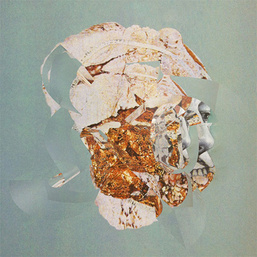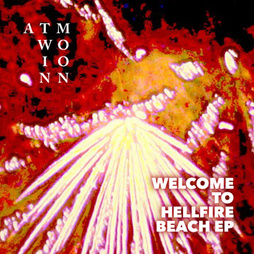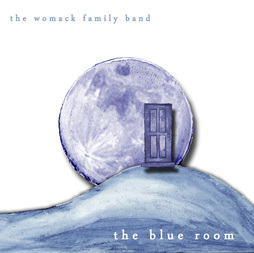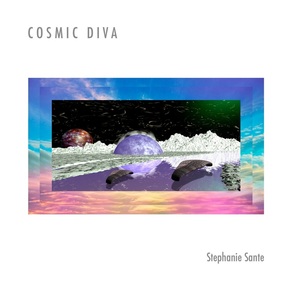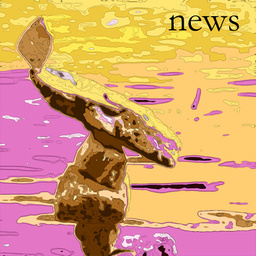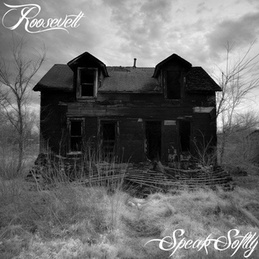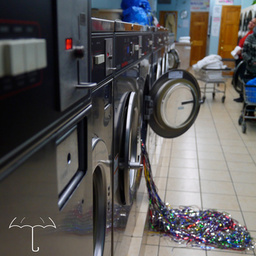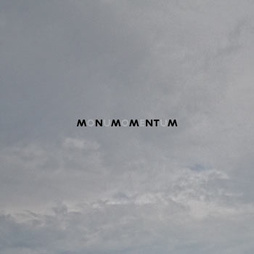|
Matt Scheurich aka Bow Arrow is a talented artist who writes electronic, down tempo pop you might be inclined to find on a label like Italians Do It Better. Scheurich’s music fits alongside bands like The Chromatics or Glass Candy. His voice often sounds like a mixture between Ian Curtis and John Maus but his voice has been heavily treated with effects. Scheurich first release was back in 2011 and called Σ Of An Aftermath. That album was about a terrifying experience he had in the Papua New Guinea jungle where he got shot with arrows and one of the local tribesman tried to rape his girlfriend. He wrote the album to help with his mental state and I would recommend you take a listen to that as well. His new album Aleph Null is a bit derivative of Σ Of An Aftermath. Scheurich explains “This one is not an entirely similar release, but I feel it definitely is from the same origins, however with a different perspective.” With Aleph Null you have a nice variety of mood, tone and atmosphere sometimes all at the very same time. Take for instance the dichotomy of “23,” which is one of the album’s highlights. The programming here is top notch as he implements a subdued beat, distorted sub bass and a number of elements. What stood out for me was the complexity of the percussion, which creates a whirl of energy that juxtaposes the stoic, almost monotonous vocals. It creates a tantalizing effect that draws you into the song. The first song is called “Glass,” which is one of the best songs on the album. Combining crystal-like synths, with lead square bass parts and heavy electronic kits, it delivers some infectious sounds. Scheurich’s vocals sound great as they’re delivered in just above a whisper during the verse and get just the right amount of gusto during the chorus. The vocals lay low in the mix but worked perfectly fine for the type of music he is making. “Farewell” utilizes dark synth tones and arpeggiated synths to create a nice canvas for Scheurich to sing over while “Outside Inside” provides an ample amount of melancholy for the listener to indulge in. Another highlight is “Minor Victories,” which continues in the vein of some of the previous songs. He closes with the sparse, kind of spooky “Minds Eye.” Scheurich’s vocals start to sound a bit like Scott Walker at times. It was an interesting choice for a closer. Top to bottom this album is good listen. The production is on point as Scheurich submerges you in nine songs of down beat electro pop that hit the mark.
1 Comment
Only 18 years old Chase Johansson is making music that sounds well beyond his years. After finishing high school he recorded Red Brick Road. It contains five songs (six if you include the live version of “Red Brick Road”) that are well produced and written. The songs revolve around Johansson’s vocals and acoustic guitar although there are some other instruments scattered amongst the songs. One of the first things you will notice about the songs is the slick production. His guitar sound likes it two feet in front of you and his voice resonates as though he is playing in a small venue. His music utilizes well-placed vocal harmonies to accentuate certain phrases on some songs. It’s subtle but it makes a difference. Lyrically, he isn't too shabby either as his lyrics aren't too abstract or cliché at the same time. His delivery is warm and has a commercial appeal that almost sounds too recognizable at points. Nonetheless, Johansson's got a good voice. The album opens with “Trust Me” which contains hints of melancholy and just enough optimism to find a good balance. It is a solid song that displays good songwriting even if it is a bit hokey at points. The opener was good but the best song on the album goes to the title track “Red Brick Road.” The song has a country swagger that will induce a knee-slapping hoedown. The song is his acoustic and voice until about the one-minute mark where we are introduced to handclaps and a walking bass line that gives a good amount of energy. I hope to hear more of this style from him in the future because it sure fits his voice and he pulls it off well. “Storm Song” is the most nostalgic, melancholy-fueled song on the album while “Sand” contains the best vocal harmonies on the album. “April 12th” which just so happens to be my birthday is an upbeat ditty that I couldn't help but think could have benefitted from a swinging drum beat and steady bass line. It felt a bit sparse. Johansson is more than impressive. He is a good songwriter who still seems to be finding his style. In the meantime I would listen to Red Brick Road. Brian Geiger aka Lodge Park is 15 years old – yes you read it right. He makes immersive ambient music that could be compared to bands like Windy and Carl and even some of the ambient pieces you may hear from a band like Godspeed! You Black Emperor. The compositions sound incredibly organic. You don't get anything that sounds like it is coming from presets in Ableton or Reason but rather field recordings, feedback loops, resonance from inanimate objects and so on.
The self-titled album Lodge Park starts out with what in my opinion is the most beautiful song on the album called “Sleep.” It covers you in the softest of tones and instills a sense of stillness. The piano is so sparse and covered with so much reverb it feels like its being played in last night’s dream. I would have enjoyed the song with vocals or without them but to be honest I felt that the vocals detracted from this song and others as well. Geiger sings in such a hushed tone it sounds as if he is a ghost and has barely enough energy to finish the words. The second song “Stir” still has some beautiful overtones but is also more haunting than the first song. Distant sirens and pianos create a ghostly layer of sound that Geiger moans over. “Night” takes an even darker tone that feels like a vortex of vacuous energy that is being held in a container. Distorted nose envelops most of the frequencies as a steady kick drum creates a small sense of cohesion. “Cedar” reverts back to some of the beauty of the first song creating a sense of distance as if you are remembering something from a dream. The album closes with the nine-minute titled track “Lodge Park.” It combines his dark tendencies and aesthetic to create a sense of peace. HIs vocal style doesn't change much but is completely fitting for the song. After listening to this album it is hard to believe Geiger is only 15. It’s far from perfect but it is incredibly deep for someone that age. Keep your eye on this one. Hailing from Hawkes Bay, New Zealand A Twin Moon is an alternative band that formed in 2011. The band is a three- piece consisting of Brad Gamble (vocals/guitar, Sarah Bell (bass) and Steve Cottingham (drums). On their EP Welcome To Hellfire Beach they often sound much bigger than the sum of their parts. They utilize a fair amount of reverb to create a large sound that could be comparable to contemporaries like Wild Nothings but you will also notice some influence from 80’s bands like The Cure. Anyway you slice it these are good songs. The songwriting is up to par and every member is an essential part of the music. Gamble has a very appealing voice with a wide dynamic range. This can be heard on “Oh! The Places You Will Go” as he strains his vocal chords and then transitions into a falsetto. On the same song you can hear the zigzag bass line of Sarah Bell and creative drum work of Cottingham. Welcome To Hellfire Beach starts with one of the best songs on the album called “When You Were Young.” This song won't blow your mind with innovation but is rather an instantly catchy and recognizable rock tune that puts the crunchy rhythms guitars front and center. Gamble also gives one of his best vocal performances on the album. “New Friends” is a little more pop and a little less rock than the first song. The distortion is replaced by clean guitars, which play fun, almost whimsical riffs. They do break out the distortion towards the end of the song, which wasn't really necessary. The title track “Welcome to Hellfire Beach” has the slowest BPM on the album. The guitars create sheets of white noise as Gamble repeats the phrase “don't rush” on the chorus. Towards the end of the song there is gritty lead guitar work that fits the song just fine. Closing with “Skylights” was an interesting choice as it has very sparse vocals and is an instrumental number. Nonetheless, it is a good song with unconventional structure, a number of crescendos and plenty of reverb. Good songs, good band, check it out, enough said.
The Womacks is truly a family band. The band members were all raised within 10 miles of each other and Noah & Haley Heyman are brother and sister. Another member of the band Tony Schaffer is married Haley Heyman. Furthermore Noah Heyman started dating the drummer’s sister. Suffice it to say that there are other things that bring them together besides music. What may be most interesting is that they all live together in Norfolk, Ohio. While you might think to yourself I don't remember a band being this close since The Mamas & the Papas. You may also wonder do they have any talent? I am happy to report to you that they do with a resounding yes. They create Americana folk that sounds like a slice of the hills and back roads that are spread throughout the rural landscape. I can’t help but imagine the country when I listen to this music; the smell of apple pie on a windowsill, the sight of a dog barking in the backyard or your mother hanging out laundry. They recently released an album entitled The Blue Room, which encapsulates this imagery over 10 songs. If you want to start your day with a smile I wouldn't suggest skipping over the first song “Goodbye Birdie.” It is an acoustic song with beautiful string work as well as vocal harmonies. It’s a song that is hard not to like and is a bit reminiscent of “Ripple” by the Grateful Dead, which gives you a similar type of feeling. “Far More” features Haley Heyman on lead vocals and fares very well. Her voice is conducive to the music and fits the next song just as well, which is a jazz-inspired number called “Blue.” “Another Shore” doesn't fare quite as well and feels more like elevator music than some of their previous tunes. They quickly get back on track however with the fun and festive “A Silver Line of Peace,” which has a great lead guitar line as well as some of the best percussive elements on the album. Another highlight is “Sun Shine Down My Way,” which contains more great string work and almost gospel-like vocal work. The Womacks have delivered a warm album that feels like sunshine in the morning. I recommend that if you want to brighten up your day that you take a listen.
Stephanie Sante is the mastermind behind Cosmic Diva. Let’s just say she is the cosmic diva. This is her seventh release as a musician and through the creation process of each album release, her sound and style evolves. This latest album of hers is centered on the style of super ambient lounge music with Bossa Nova influences. This is an album that could perfectly play in the background of any coffee shop where the artists writing their next novel and the people getting their morning fix will both enjoy this existential collection of “cosmic” songs. All of the songs that make up the album are very spacey in origin; the synths all maintain the quality of futurism and technology. The song “Link With Me” is ambient and chill but has a very upbeat and compelling beat to it. I can imagine the sounds being emitted from some type of ray gun out in space that just allows the music to swirl in the vacuum. The next song “Group Mind” is upbeat from the start. It reminds me of the style from bands like Portishead or Massive Attack. There is an interesting effect that is used that sounds like a strange space bird cooing. The track coolly named “Genesis of Creation” is a song that really defends the Bossa Nova style. (Bossa Nova is a style birthed out of Brazil that is upbeat electronic lounge music infused with some ethnic vibes.) Each song on Cosmic Diva seems to almost effortlessly beg an unseen question, or open the mind in a newfound way. The song "Loves Journey" takes the listener on an aural journey that is so light and uplifting. At every moment in the song, there is a heavy layer of wavy sounds that swirl and blend to create a feeling of cosmic love. This song also shares many Bossa Nova vibes as there is some piano-like synths and something that sounds like a horn. The sounds throughout the album are all very unique and lack the possibility of “getting old.” This is a collection of songs that you can play back over and over again and new sentiments and experiences through the structures of the music can be felt. Also, the names of all of the tracks are very solid in perpetuating the existence that is space and the genre that is sci-fi. While the music on Cosmic Diva is ambient music, it remains ethereally dramatic and could be a soundtrack to an epic sci-fi production. I don't listen to a lot of American music on my own time, but when I do, it's usually someone from Washington. I'm not really sure what's in the water up there, but something about the sound of the music from that state just works for me. After a bit of questioning, I have to say that it holds up with the music of Reid Trevarthen, a singer/songwriter from Vancouver, Washington.
He's been steadily releasing music since 2010 and his fifth release, News, sees him exploring the world of recording with real microphones and handling all of the mixing and mastering on his own as well. Like his last two releases, he recorded News at the North Bank Artists Gallery in Vancouver with a very simple rig that's allowed him to make a wonderful sounding EP. That wonderful sound comes courtesy of favoring melody over obvious lyrical clarity. You have the option of listening to his songs to find meaning in his words or you can just enjoy the melody. He cites Elliott Smith as a major influence, prompting him to double-track his vocals and perfect harmonies. Those harmonies are what saved "You're Only One" for me; until they started I was getting ready to skip over the song. It's a bit of the wrong kind of slow for my taste but the subtle harmonies make it worth listening to. The best of the EP started with "Dead End Street,” an absolutely perfect country song, completely free from the polish and faux-twang that characterizes what the radio calls country these days. That influence carries into the slide guitar solo of "Reality.” Trevarthen described his recording process and I have to say, I don't know how he manages to turn out such good work with that little time dedicated to writing each part. Apart from the guitar and melody, each track within a song is written and recorded within an hour. He keeps things simple for "Long Road,” no rhythm tracks, just acoustic guitars and vocals that build toward a beautiful guitar solo before ending as quietly as the song began. That simplicity continues in "Hungry Farmer,” a song with a melody that reminds me a lot of some of Ben Gibbard's work. The song takes you by surprise as well; with a sudden rolling drum beat and expansive harmonies. The final track, "Hook and Eye (Yeah, Ok)" is a bit of an oddball amongst the rest of the EP. It's a great pop song but it feels a bit like it should be a hidden track or a bonus because as a closer, I feel like it takes away from the powerful ending of "Hungry Farmer.” Even so, the a cappella intro really showcases Trevarthen’s skills as a singer. It isn’t easy to make a well-written, instrumentally fresh modern album. Four-piece rock band Roosevelt has managed to do just that, with the home-recorded effort Speak Softly. This album has an alternative, refreshingly punkish indie vibe with a personal touch, putting all of the most powerful human emotions on display. Roosevelt uses a range of vocals, guitar chords and solos, a varying drum sound and a powerful bass, along with a few artistic touches along the way for emphasis, to tell a story that most can relate to. The album kicks off with “…And Carry a Big Stick,” which wastes absolutely no time with meaningless intros, opting to throw you right in the midst of the action. The sharp chords and angry yells set the tone for the rest of the album, describing the platform from which the story launches. The swirling guitar and crashing drums boost the lyrics. The shouts of “Speak Softly” make this sound like the true title song of the album. It transitions evenly into “Blind Tigers,” which greets you with galloping drums and a rally call. Halfway through the song melts into an emotional, heavy interlude with a hallowed echo and softly strumming guitar work that lifts and carries the song with the wind. The layered vocals, taking the stage when the meat of the song reappears, are a nice touch. You begin to realize the vocalist’s rather impressive range here. “It’s All Yours” is unexpectedly catchy, and it got stuck in my head upon first listen to the chorus. It expresses the excitement of meeting a new love interest, and really starts to take the album up a slope. These first few songs culminate in “High Water Mark”, the most energetic piece to this point. Each part (lyrics, drums, bass, and guitar) picks up substantially, giving you the frenzied sense of drowning in water with waves crashing over your head. It also features a powerful, scaling guitar solo that takes the high end of the song to a new level. “The Edge” is the first plateau of the album. The vocals take a more monotone sound – there is a sense of estrangement, of cynicism, that wasn’t apparent before. It sounds as if the vocalist, and the album, has reached a point of mature comfort here. “The Passionate Frame of Mind” adds even more emotion with a bluesy and soulful feel. It’s a reflective piece; the guitars do a great job of complementing the vocals. I loved the addition of female vocals. “The View From Here” has a low end that is just phenomenal – it features the kind of bass that hits you right in the center of the chest. The songwriting also shines here – through describing the sense of stepping off a cliff, you get the feeling of running away, of freedom. The outro is especially poignant; it mimics the sense of serenity described in the lyrics. This is a song you can feel in every bone of your body. Just as you were ready to think everything was over, “Hats Off To You, Slick” appears to let you know that there is still story to be told. The vocals emphasize that running away was a bad decision, and the frantic touch that first showed itself in “High Water Mark” is back. This is an epiphany song and demonstrates another energetic peak of the album, a moment of realization. “Crush Me” takes the smoothness of the low end and applies it to a higher scale, which was a fantastic move. The vocals and instruments play a bit of call/respond, where each part is allowed to take the song to a new level on its own rather than battling for position. The balance is a real strong point, and the addition of the orchestral tone lends another dramatic edge. It melts into “The Loss of Sapphire,” which is the darkest song on the album. The vocals are grittier than before. You also hear the best guitar work of the album on this song – the technicality of the scales becomes more and more impressive as the song carries on, and the chords and pounding drums in the background give it a complementary dynamic that just blows you away. This entire journey leaves you “Shattered,” in which guitars and piano tones welcome you to the final song of the album. The lyrics display a sense of depressed optimism. The piano is such an unexpected but powerful part of this song, adding just the right amount of emphasis of mood – and it’s incredibly well played. The song, and album, ends abruptly on a final crescendo, and though most albums like to soothe you away, this is the perfect ending for the tumultuous work. This is not a listen once and forget it album; each listen reveals a new dynamic, a new piece to the story, and a new sense of cohesion that wasn’t apparent the first time around. “Speak Softly” is comforting, energetic, optimistic and depressing all at the same time, and as such shows how much heart and soul went into each song. One can only imagine where this band will evolve from here. Definitely give this album a few listens and allow the artfully told musical story to take you away.
The blues are not dead; in fact, they’re alive, well, and modernized in Every Flavor Weather Machine’s self-titled album Every Flavor Weather Machine. Present in almost all of the songs is the skillful march of the trumpet and the impressively technical piano chords and scales that add flavor to each song. The real standout here, though, is the songwriting; lyrics of love, heartbreak, struggle and almost foolhardy optimism tell the stories of young artists and musicians discovering the truth of life and sharing that wisdom with the listener. “Cameo” is a hilarious yet hauntingly depressing show-tunes style song describing a man being left behind by his love, a famous Broadway type of girl. “Karma Kid” features a rap verse that works beautifully with the rest of the song, though it was totally unexpected.“I Work Alone” follows the formula of songs before it, but is unique in the poignancy of the lyrics. It follows a tune about losing the love of your life, which makes it particularly powerful. On the other end of the spectrum, “Arithmetic” allows the natural humor of the band to shine through, with playful lyrics dancing on top of punctuating trumpets. “I’m Out” has attitude! This is truly the perfect break up anthem, and though it is specifically about a woman, the “babe I’m out” can easily be repeated by anyone in that situation. The closing song “One for the Road” has a bit of a gospel sound, and ends the album much like a classic blues albums would, with a sense of ‘so long, farewell’ rife throughout the woeful piano. Though some of the songs get a bit repetitive and may not require a full album listen each time, it’s worth admiring that Every Flavor Weather Machine really allows their personality to shine in every word and note, even displaying their quirky and honest sense of humor on their websites. A modern take on classic music, this album is a reminder that human emotions and struggles can still be refreshing topics and make for intriguing songs.
I was excited to give Monumomentum a listen; Jeff Evans, the mastermind behind the project, is from my hometown of Chicago, IL, and I love listening to local artists. He is open about his influences (naming Tool and Rush, as well as members of bands he used to play with), and you can hear his passion in every note. There are some great high-energy songs included in this album Monumomentum (MNMMNTM). Opener “Face” features a ticking drum and swirling guitars, giving the impression of falling into a vortex; it is an attention grabbing song, and a great way to start the album. “MNMMNTM” does a great job of carrying that energy, sounding like something from the Dynasty Warriors soundtrack. The groovy section really breaks up the song nicely and offers a break from the action. In a similar vein, “Done!” has a nice 80s touch, and aptly describes the feeling of finishing a large project, and the resulting relief from the same. These songs are some of the longest on the album, and though in some cases they seem a bit too long, the time signature changes and differing key scales keeps each one interesting. On the other side of the spectrum are some of the heaviest, yet shortest, songs on the album. “False” is a highly emotive piece that brings Tool to mind, and is one of the most heart-wrenchingly genuine songs here. “Never” sounds like a fantasy song, and plays much like an interlude. I wish these were longer, but their short length adds a poignancy that would be lost if they were full length. Peppered between the high energy and the interludes are more fun songs, and these are the ones that hold the most personality in the album. “Syntax” offers a solo that can only be described as air-guitarrific. “Lumber” has a futuristic, almost Daft Punk-esque underlay, which makes it unique to the other songs here. “Beers For Algernon” was a very interesting song; the drum has an enhanced presence, and it reminds me of a progressive, rocked out version of the music you hear when you’re waiting on hold. My favorite song was one that seemed to have a great deal of personal significance to the artist: “Nueve – featuring Jason Mallow (bonus track)”. The Spanish guitar rears its head big time in this song. It reminds me a lot of the style of “Obsession Confession” by Slash, and that’s a very good thing. Unlike the rest of the album, which certainly has more of a lounge appeal, this is a song you want to dance to. Though it wasn’t originally intended to be the final track, it was a really great way to close out the album, ending it on a high note. Overall, this album was a pretty cool concept. I love how the influences are clear but not overpowering; this is still a unique work. Although I thought some of the songs were too long, and others were too short, ultimately the whole piece balanced well. This is the kind of music I would listen to while getting work done; intriguing enough to keep you alert and listening, but not so busy that it’s distracting. |
Critique/insightWe are dedicated to informing the public about the different types of independent music that is available for your listening pleasure as well as giving the artist a professional critique from a seasoned music geek. We critique a wide variety of niche genres like experimental, IDM, electronic, ambient, shoegaze and much more.
Are you one of our faithful visitors who enjoys our website? Like us on Facebook
Archives
July 2024
|

